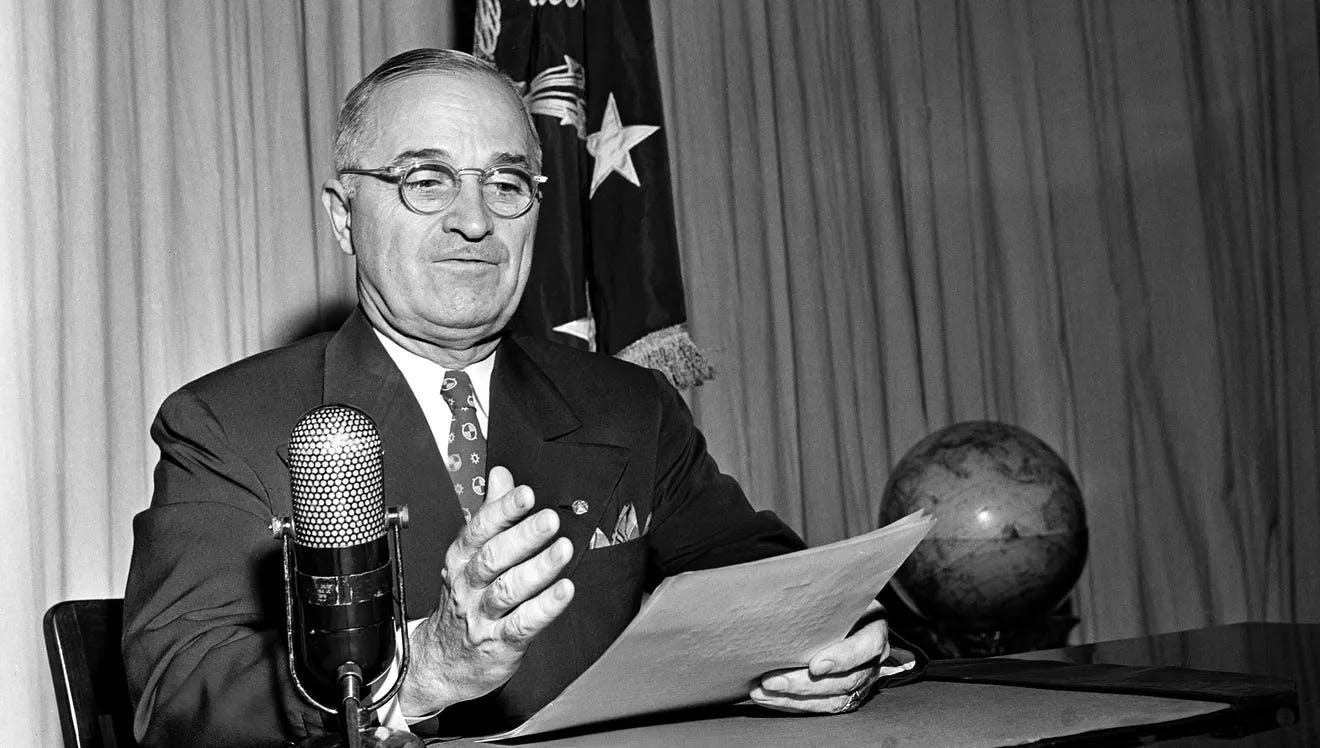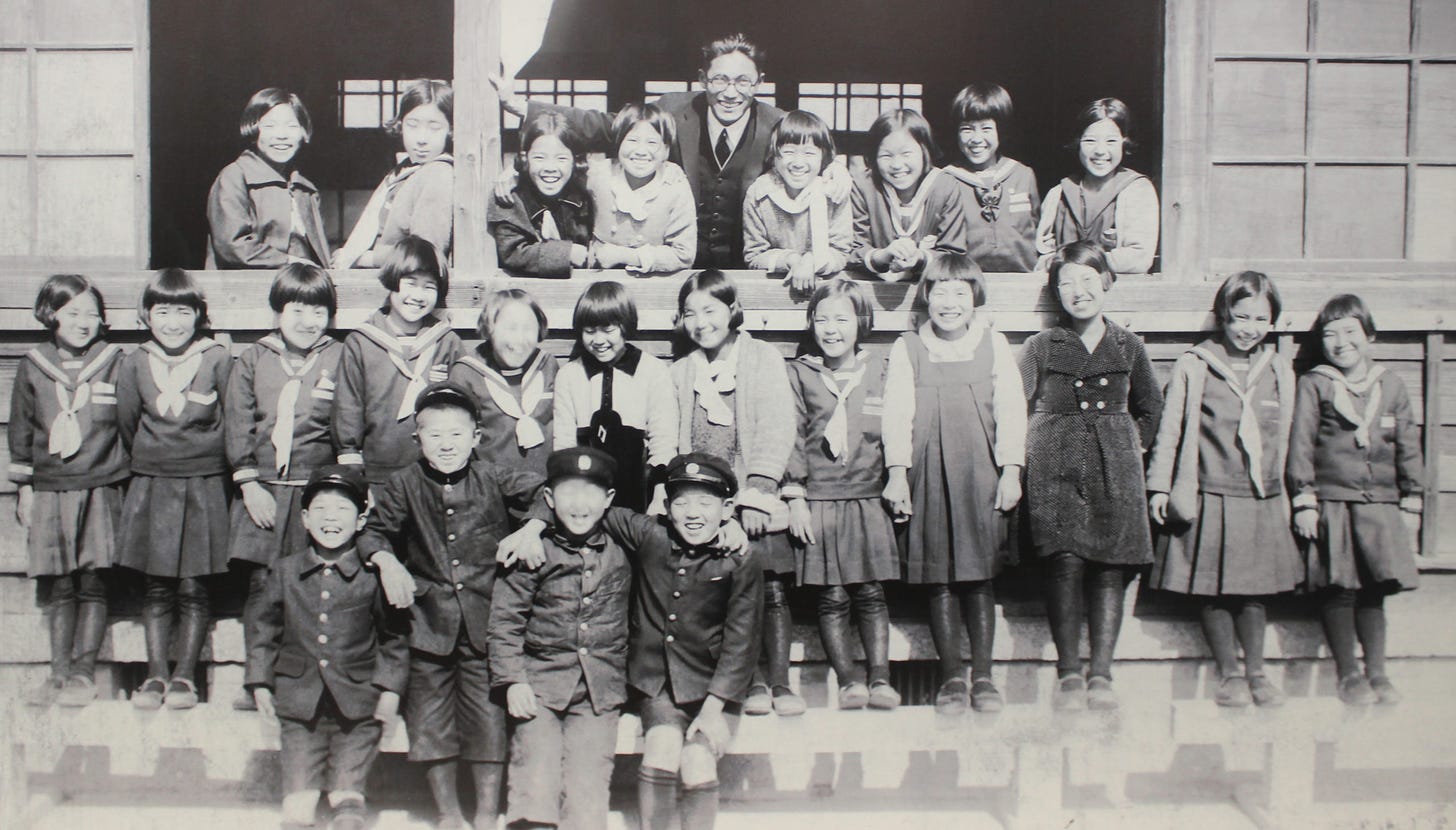Reprinted with permission from Greg Mitchell’s newsletter Oppenheimer: From Hiroshima to Hollywood.
It’s in vain to recall the past, unless it works some influence upon the present. – Charles Dickens

In Christopher Nolan’s movie Oppenheimer, the physicist who directed the creation of the atomic bomb learns that the new weapon had exploded over a Japanese city on August 6, 1945, when it is broadcast over a public address system at Los Alamos. Almost at the same time he receives a phone call from his boss, the Manhattan Project director, Gen. Leslie R. Groves, informing him that the first bomb had gone off with a “tremendous bang.”
Oppie’s fellow scientists are already buzzing and cheering outside as he tells Groves that everyone there is feeling “reasonably good” about it, the “reasonably” a revealing qualifier. Since he had not conversed with anyone else as yet, how could he make that judgment? He had to be referring to his own, already mixed, emotions. On the other hand, when Groves reminds him about “the next objective” (that is, the second atomic bomb), the always conflicted but dutiful Oppenheimer replies, “Good….We won’t be behind schedule on that.”
Left out of the Nolan movie (and absent from a vast number of accounts of the historic phone call to this day) was what happened before all that, very early in the conversation. According to the official transcript of the call, Oppenheimer asked Groves: “When was this, was it after sundown?” It was clearly in the front of his mind.
Groves replied:
No, unfortunately it had to be in the daytime on account of security of the plane and that was left in the hands of the commanding general over there – and he knew what the advantages were of doing it after sundown and he was told just all about that, and I said it was up to him – that it was not paramount but that it was very desirable.
Now, this is an incredibly fascinating and revealing exchange, if little studied.
In previous weeks, Oppenheimer had advised the military on several aspects of the actual use of the weapon over a Japanese city, including the best elevation for detonation to produce the most damage. But it appears he was under the impression that it would be used after dark, certainly not at 8:15 in the morning.
Now, this is significant. At night, civilian workers and students would have been at home, along with housewives and the elderly, shielded at least partly by the heat and radiation (if not the blast) produced by the atomic explosion. Eight o’clock in the morning was rush hour in Hiroshima: Men and women on buses and trolleys on the way to work, students heading for school or (as I was told by several of the survivors in Hiroshima) lined up outside in the open for morning roll call or exercise. Thus exposed, thousands of children died in an instant.
Oppenheimer would have sensed immediately what a bomb drop at that hour would have meant in terms of casualties – and what it signified about our intentions. Had he been misled in advance about the timing? In their exchange, remember, Groves uses the word “unfortunately” in referring to the early morning timing of the blast. And, amazingly, that the “commanding general” for the mission out in the Pacific had been told “all about” the advantages of a nighttime mission, and that this was preferable though not “paramount.”
What were these advantages supposedly in Grove’s mind?
One might think that he was referring to the safety of the B-29s, shrouded in the dark. But that would have also made finding the precise center-of-city target visually more difficult (they were not supposed to rely on radar) – and Groves, in fact, in the Oppenheimer call says the daytime run was decided “on account of security of the plane.” So what were the “advantages”?
We will never know, nor if Groves had misled Oppie about this from the start. In that regard, it is remarkable, though not surprising, to see in the transcript that Groves, perhaps anticipating Oppie’s disapproval, twice in practically one breath assigns responsibility to that other general.
In any event, on that day, one U.S. plane dropped one bomb over one target in Japan, destroying most of a city and dooming over 125,000 people, at least eighty percent of them civilians, to death.

Greg Mitchell is the author of a dozen books, including “Hiroshima in America,” and the recent award-winning The Beginning or the End: How Hollywood – and America – Learned to Stop Worrying and Love the Bomb, and has directed three documentary films since 2021, including two for PBS (plus award-winning “Atomic Cover-up”). He has written widely about the atomic bomb and atomic bombings, and their aftermath, for over forty years. He writes often at Oppenheimer: From Hiroshima to Hollywood.




A war crime, no matter how you slice it.
Relitigating WW II serves no purpose.
Are you out of your mind? We want to avoid the mistakes of the past, not repeat them.